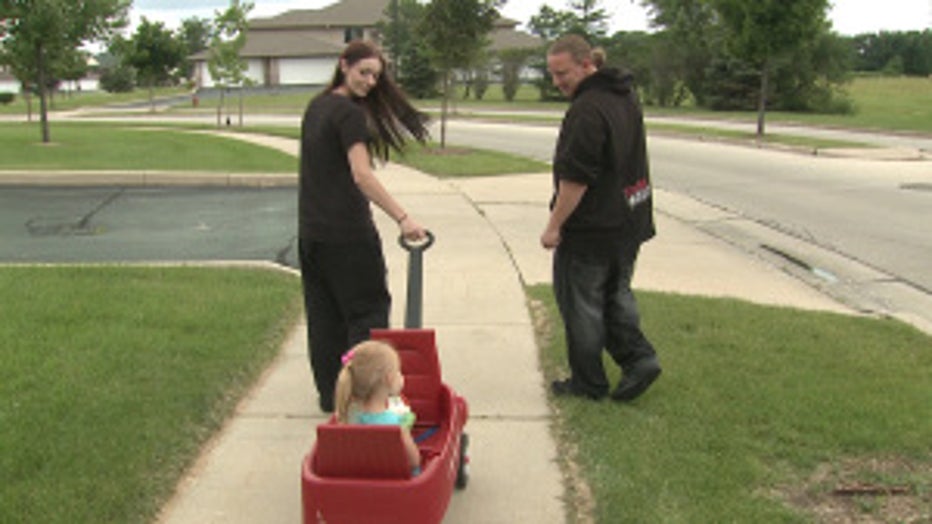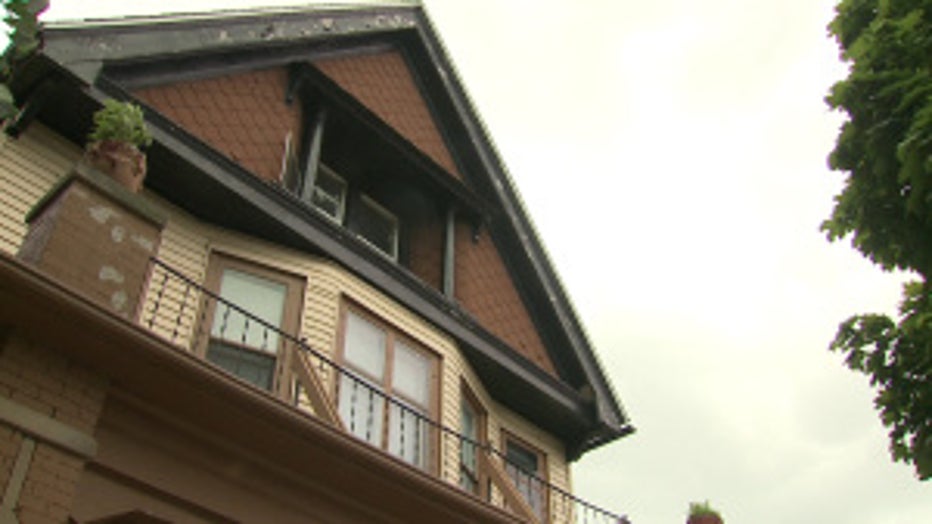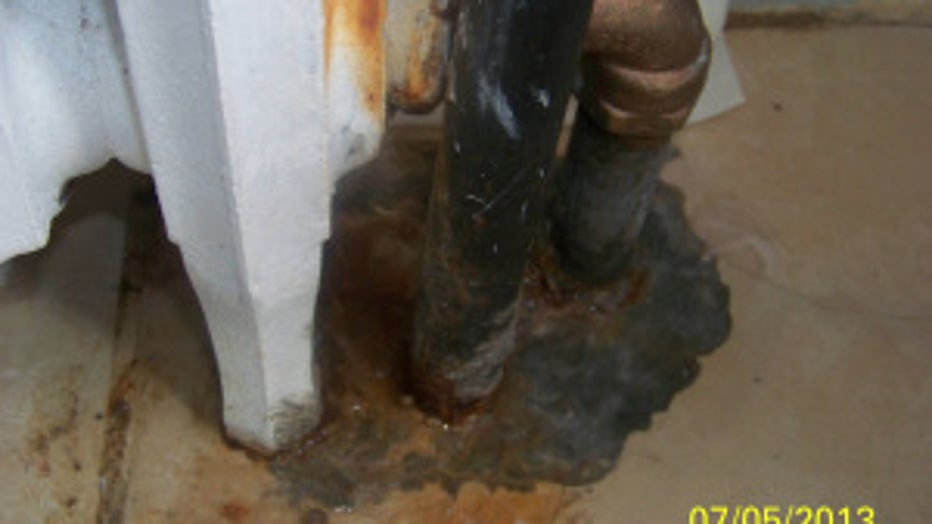Renter's Regret: Do you know who owns the house you're living in?
MILWAUKEE (WITI) -- If you don't own your home, chances are you depend on a landlord or a property management company to fix things when they break. But if they don't do their job, who can you turn to for help? As Nicole Spors and Craig Schleisner found out -- there's not always an easy answer.
Spors and her boyfriend Schleisner rented a home on W. Mitchell Street in Milwaukee in early 2013. They say their nightmare began soon thereafter when they found evidence of fire damage and water damage, and possible mold in their unit.

"We had issues with leaky radiators and we actually found mushrooms behind the radiators, there were huge puddles of water," Spors said.
They claim when they told their landlord about the issues, he ignored them.
"You worry for your kids when there are damaged things. Like could they fall through the porch or hit the spikes? The mold was definitely the biggest concern," Spors said.
"It's always another tomorrow and it has constantly been like that for everything."
Frustrated, Craig and Nicole say they finally called in a building inspector to document all of the repairs that needed to be made.
They hoped the inspection report would be the evidence they needed to file a rent abatement claim in court. A rent abatement claim is a type of lawsuit. Tenants can get rent money refunded if repairs aren't made.
But then, things got complicated. To file a claim in court, Craig and Nicole needed to sue the owner of the property. But according to city records -- their landlord wasn't the owner.
"We really started our digging and found out that he never registered the property at all,"

Spors said.
Which meant they were

stuck.
"We can't get out of the lease. We can't get help."
The Legal Aid Society of Milwaukee says this happens all the time.
Sometimes it's nearly impossible to find out who really owns a property. And often, property owners don't want to be found because they don't want to have to make repairs.
"The tenant might try to get crafty about finding that information maybe through the city assessor's website or any other way to find out who bought the property and who's in charge of it," says Anders Zanichkowsky, program director for the Tenant Resource Center in Madison.
In this case, the assessor's website showed the home was owned by Hope Through Divine Intervention, a company based out of Georgia.
The landlord, Michael Salinas, says he was the real owner -- he just didn't properly record his deed.

And that, he says, was an accident, not a way to avoid taking responsibility.
Salinas says he's a great landlord, and Craig and Nicole are the only tenants he's never had issues with. As a single dad he says he's always worried about the safety of his properties and he always makes repairs.
"It wasn't mold, it was dust bunnies. They just didn't clean their house," Salinas said.
Despite more than a dozen code violations since he took over the property, Salinas says the house is in good condition.
"Unfortunately, that might seem like the case but there has been a great deal of work done on the place," Salinas said.
Craig and Nicole moved out when their lease ended. They sued Salinas to get their security deposit back -- and won. But they still feel like they were taken advantage of, and they want to warn other renters not to make make the same mistake.
"Definitely research the ownership. I mean you look at a property you don't really think to check the actual owner or landlord as well as you should," Spors says.
"You really have to know who you're getting involved with."
If you're curious to find out who owns the house you're living in, you can click here and here and search for your address. If your landlord is not the owner, make sure you know who you can sue in case your landlord doesn't make repairs. In Wisconsin, leases are required to provide the name of a person who can accept legal service, along with a physical address in Wisconsin for that person.
Sometimes people don't buy homes with their owns names. Often, buyers will create limited liability companies. For example, your house may be owned by John Smith LLC, but that doesn't necessarily mean John Smith is the owner. You might have to do a little digging.
If you are a tenant who needs help with a landlord, you can contact the Tenant Resource Center for free.

